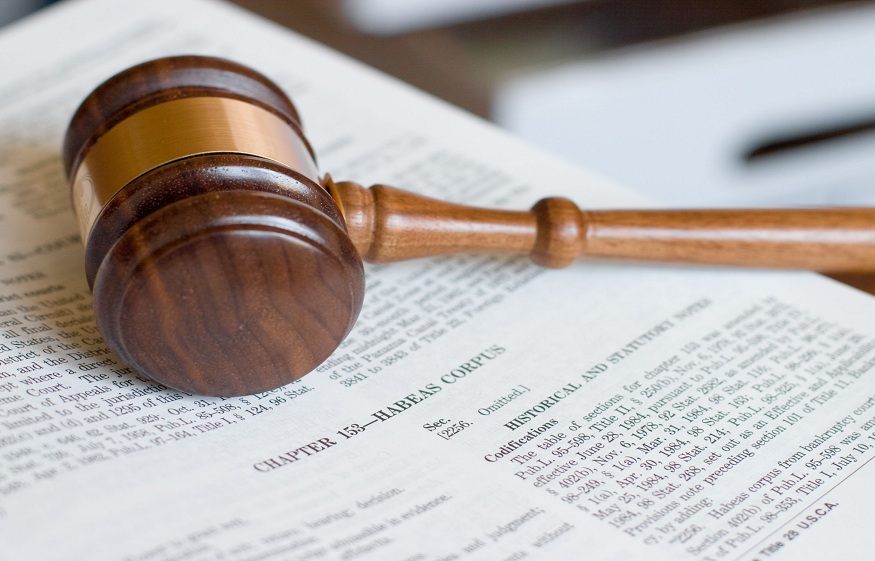Navigating the complexities of the legal system can often feel overwhelming, particularly when it involves the fundamental right of habeas corpus. As rights that protect us from unlawful detention, habeas corpus petitions play a crucial role in upholding justice. Understanding the role of a habeas corpus lawyer can empower those affected by unjust imprisonment and ensure that their cases receive the attention they rightfully deserve.
A habeas corpus lawyer is an advocate for those who believe they have been unlawfully detained, working diligently to challenge the legality of such detention. By filing petitions, examining legal loopholes, and presenting compelling arguments, these legal professionals fight for our freedom and due process. Their expertise is pivotal in safeguarding individuals’ rights against wrongful imprisonment.
The importance of having a skilled habeas corpus lawyer cannot be overstated. Whether addressing constitutional rights or navigating complex legal hurdles, these lawyers are vital to championing fair justice. By diving into the nuances of each case, they provide an opportunity for every individual to have their voice heard and their rights protected.Learn more about Habeas Corpus Lawyer
Understanding Habeas Corpus
Habeas Corpus serves as a critical legal mechanism in the protection of individual freedom, ensuring that a person’s detention is not unlawful. This section explores the historical origins, practical implications, and legal rights associated with this essential writ.
Origins and Constitutional Foundation
Habeas Corpus has roots deep in the English legal system, where it emerged as a safeguard against unlawful imprisonment. It is enshrined in the U.S. Constitution, specifically in Article I, Section 9, which asserts, “The privilege of the Writ of Habeas Corpus shall not be suspended.” This clause underscores the importance placed on the protection of individual liberty and civil rights. Our legal system recognizes it as a fundamental component of judicial authority, guiding both federal and state courts. The requirement to justify detention ensures accountability in upholding constitutional rights.
Habeas Corpus in Practice
In practice, Habeas Corpus petitions are used by individuals contesting the legality of their detention. These petitions are typically addressed in federal court, although state courts also have jurisdiction. A writ of habeas corpus compels authorities to validate the basis for imprisonment. Statute of limitations and jurisdictional challenges can arise, impacting the petition process. The federal writ of habeas corpus is a powerful tool, applied in cases where federal laws or constitutional violations are claimed. By examining the legal justifications for detention, we help maintain the balance between enforcement and personal freedoms.
Rights and Protections Afforded by Habeas Corpus
The right to file a Habeas Corpus petition is a core protection, offering an avenue to challenge detention. This writ serves as a cornerstone of constitutional rights, safeguarding against arbitrary confinement. It also intersects with bail proceedings, ensuring that detention is reasonable and justifiable. Understanding these protections empowers us to advocate for civil rights more effectively, as Habeas Corpus petitions reinforce oversight over government authority. By maintaining these legal safeguards, we contribute to the broader application of justice and the upholding of individual freedoms.
The Habeas Corpus Legal Process
The habeas corpus process is crucial for challenging unlawful imprisonment. It involves filing petitions, navigating court systems, and facing potential challenges.
Petitioning for Habeas Relief
When filing a habeas petition, prisoners typically challenge the validity of their detention. Common claims include ineffective assistance of counsel, prosecutorial misconduct, or jury misconduct. Our role is to establish “good cause” for the appeal by identifying judicial errors.
Direct appeal differs from habeas relief, as habeas is not a substitute for a criminal appeal but addresses constitutional violations like double jeopardy. In state courts, such as those governed by the Georgia Constitution, this process is crucial after a conviction.
Challenges within the Habeas Corpus Landscape
Navigating habeas corpus is complex. One major challenge is demonstrating constitutional violations like those related to conditions of confinement or civil rights complaints. The Prison Litigation Reform Act complicates conditions claims by imposing strict procedural rules.
Moreover, federal entities like the U.S. Marshals Service, Immigration and Customs Enforcement, and the Federal Bureau of Investigations often become involved in extradition and deportation cases. Timing is also critical, with statutes governing speedy trials.
Navigating the Legal System
Successfully maneuvering through the intricate legal system requires precision. We consult with habeas corpus attorneys who provide expert legal advice. State courts and federal courts have different procedures, making this navigation particularly nuanced.
These proceedings can occur at various levels, from local court orders to the Circuit Court. Throughout the process, detainees may have additional hearings, such as a bond hearing, while appeals extend to a higher court order. Comprehensive familiarity with each aspect streamlines the process for the involved parties.

